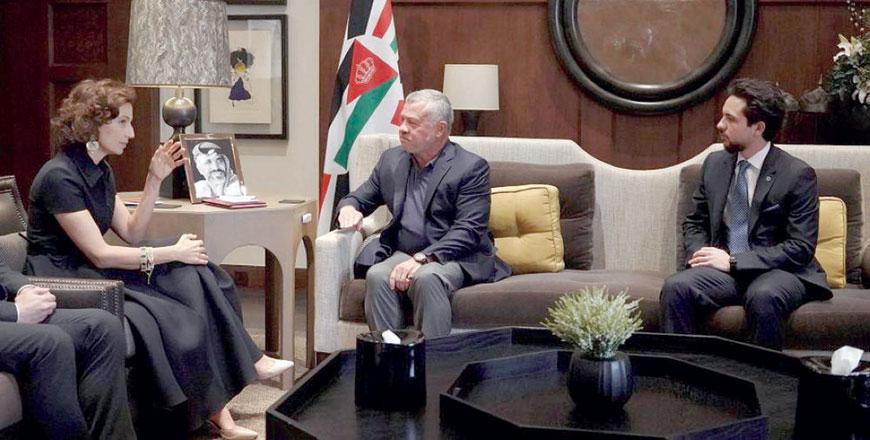You are here
UNESCO, Jordan work to strengthen cultural archive preservation
By JT - Oct 26,2017 - Last updated at Oct 26,2017
AMMAN — A needs assessment was recently carried out by the UNESCO Amman office, in coordination with the Ministry of Culture (MoC), to provide guidance on how to strengthen the state of archives’ preservation, a statement from the UN agency on Thursday said.
Several national institutions were involved in the project, including the National Library, the Royal Film Commission, the Royal Court/Hashemite Documentation Centre, the University of Jordan’s Centre for Documents and Manuscripts.
“Jordan possesses a rich and incredibly diverse collection of archives which represent a significant testimony to the cultural and historical memory of the country, and the region as a whole,” the statement read.
Ray Edmondson, a specialist in audiovisual work and pioneer of film and sound archiving, facilitated two workshops focused on audiovisual archiving in Jordan in April and September this year.
Travelling to Jordan from his native country of Australia, Edmondson shared some of the best practices surrounding audiovisual archiving in Jordan and discussed the mapping of collections in Jordan while stressing the importance of safely storing and managing such collections, according to the statement.
“The archives here are just incredible! We absolutely have to do something: it is good for the archives, it is good for the country,” he was quoted in the statement as saying.
He noted that Jordan’s newly introduced “Documents Law” represents a positive legal protection step in Jordan. The new law represents a major achievement in the realm of preservation of documentary heritage, offering “legal backing” to preservation efforts, the statement said.
The discussion also touched on the sharing of information including institutional and organisational responsibilities (current and anticipated), for storage, preservation, access and promotion.
In addition to his contributions to audiovisual archiving, Edmondson has also worked on UNESCO’s “Memory of the World” (MoW) programme.
According to UNESCO, this archived heritage “is the memory of humankind but is under constant threat of disappearing forever. It reflects the diversity of languages, peoples and cultures. It is the mirror of the world and its memory.”
The MoW programme was established by UNESCO in 1992 as a result of the increasing awareness of the precarious state of preservation of, and access to, documentary heritage in various parts of the world.
Social upheaval, as well as severe lack of resources, have worsened problems which have existed for centuries, threatening precious collections and the loss of heritage, according to the statement.
Since the global UNESCO MoW programme began over 25 years ago, some previously missing documentary heritage has been rediscovered and significant awareness has been raised on the importance of preservation efforts.
Following the needs assessment conducted earlier this year, it was recommended that the MoW programme be initiated in Jordan for the first time and UNESCO has been working closely with the Ministry of Culture to explore this opportunity.
Currently, the preservation efforts under way in Jordan are somewhat scattered and a streamlined coordination mechanism is required. Some of the material found in Jordan is in danger of being damaged or destroyed if action is not taken to digitise, restore and preserve some of the collections, the statement stressed.
The archive preservation efforts initiated this year by the UNESCO Amman office are in alignment with the 2030 Agenda for Sustainable Development, which marks a substantial step forward for sustainable development across many fields and particularly for culture, the statement read.
“World Day for Audiovisual Heritage” is marked annually on October 27 to raise general awareness of the need to preserve and safeguard important audiovisual material for future generations, and for urgent measures to be taken to conserve this heritage and ensure it remains accessible to the public now, and to future generations.
This year’s celebration was held under the theme “Discover, remember and share”, the statement concluded.
Related Articles
AMMAN — The Culture Ministry has established a committee to implement a project for the preservation of documented heritage through archivin
UNESCO launched on Wednesday a mapping report on “Jordan’s Documentary Heritage”.
AMMAN — His Majesty King Abdullah, accompanied by HRH Crown Prince Hussein, on Wednesday met with UNESCO Director General Audrey Azoulay and

















